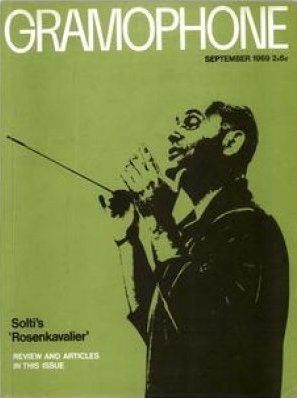Difference between revisions of "BBC Radiophonic Music (review in Gramophone)"
Martinwguy (talk | contribs) |
Martinwguy (talk | contribs) (→Transcript) |
||
| Line 11: | Line 11: | ||
<small> | <small> | ||
| − | Baker. Boys and Girls. Chase. Christmas Commercial. Factors. Festival Time. Fresh Start. Frogs' Wooing. Milky Way. Missing Jewel. New Worlds. PIGS. Quiz Time. Radio Nottingham. Reading Your Letters. Sea Sports. Structures. Time and Tune. Tomorrow's World. Cain. Artbeat. Autumn and Winter. Crossbeat. Radio Sheffield. War of the Worlds. Derbyshire. Air, Blue Veils and Golden Sands. Delian Mode. Door to Door. Mattachin. Pot au Feu. Towards Tomorrow. Ziwzih Ziwzih | + | Baker. Boys and Girls. Chase. Christmas Commercial. Factors. Festival Time. Fresh Start. Frogs' Wooing. Milky Way. Missing Jewel. New Worlds. PIGS. Quiz Time. Radio Nottingham. Reading Your Letters. Sea Sports. Structures. Time and Tune. Tomorrow's World. Cain. Artbeat. Autumn and Winter. Crossbeat. Radio Sheffield. War of the Worlds. Derbyshire. Air, Blue Veils and Golden Sands. Delian Mode. Door to Door. Mattachin. Pot au Feu. Towards Tomorrow. Ziwzih Ziwzih OO-OO-OO. |
</small> | </small> | ||
Revision as of 14:41, 29 January 2016
An article appeared in Gramophone magazine for September 1969, p.85, reviewing the album BBC Radiophonic Music, which "compared Derbyshire to Xenakis in her ability to construct complex sound patterns" [1].
The exact quote is: "Blue Veils and Delian Mode are probably the finest music here. It may be no accident that the latter is reminiscent of the beginning of Xenakis's OrientOccident for Delia Derbyshire follows the analytical approach of the more sustained electronic compositions."
Transcript
BBC RADIOPHONIC MUSIC. BBC Radio Enterprises REC25M (28s. 9d.).
Baker. Boys and Girls. Chase. Christmas Commercial. Factors. Festival Time. Fresh Start. Frogs' Wooing. Milky Way. Missing Jewel. New Worlds. PIGS. Quiz Time. Radio Nottingham. Reading Your Letters. Sea Sports. Structures. Time and Tune. Tomorrow's World. Cain. Artbeat. Autumn and Winter. Crossbeat. Radio Sheffield. War of the Worlds. Derbyshire. Air, Blue Veils and Golden Sands. Delian Mode. Door to Door. Mattachin. Pot au Feu. Towards Tomorrow. Ziwzih Ziwzih OO-OO-OO.
The BBC Radiophonic Workshop was established at the Maida Vale Studios in London during 1958 to produce original sound treatments for Third Programme drama, but it now also provides a service for regional and local broadcasting as well as for TV and radio. The output varies from complete background scores of electronic music for radio and TV drama through experimental poetry productions to signature tunes. This LP offers a crosssection of some of the shorter items and while its avowed aim is only to entertain, it instructs as well, as the best entertainment so often does. Indeed, while a few tracks, such as Crossbeat, are so brief as not to have been worth issuing, this disc as a whole ranks with John Pfeiffer's Electronomusic (RCA Victrola) as the best introductory record to electronic music I have found.
These are all specimens of functional music, each is designed to create a mood quickly, economically, and so each is easy to listen to. For example, Chase and New Worlds have the sort of tunes found in light music, while Frog's Wooing or Boys and Girls use traditional melodies. Yet while the musical arguments could not be easier to follow, the sounds through which they are articulated are very evidently not produced on traditional instruments. And so we are given an idea of some of the simpler forms of sound manipulation that are possible with ring modulators, tape-loops, reverberation channels, etc. Clearly this can prepare the ear for longer and more advanced works produced by more complex procedures and whose musical discourse is less simple. At the same time we are given an indication of what can be done with commonplace sounds—of how much there is in them, that is—by tracks like Sea Sports, where the basic material is the recorded sound of a cork being pulled from a bottle. There is room for humour, too, as in the wry Christmas Commercial, which consists of an electronic imitation of cash registers tuned to play Come, All Ye Faithful! (This should be compared, incidentally, with Pfeiffer's After Hours, a toccata for the sounds of business machinery such as typewriters, adding machines, etc.).
A number of these pieces do not easily betray their functional origin and have sufficient imaginative power to deserve publication on disc for their own sakes. David Cain's War of the Worlds is a good instance, subtley blurring onomatopoeic effects to produce an almost disquieting miniature tone-poem. Structures, Pot au Feu and Tomorrow's World are about equally good, yet Blue Veils and Delian Mode are probably the finest music here. It may be no accident that the latter is reminiscent of the beginning of Xenakis's OrientOccident for Delia Derbyshire follows the analytical approach of the more sustained electronic compositions. If her best pieces seem the most imaginative here—and they are—it is because she more fully explores the implications of her material. M.H.
Availability
- The text (reproduced above) used to be online at the Gramophone archive, which is now a subscription service.
References
- ↑ Special Sound, p.124.
